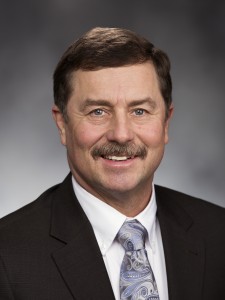This post originally appeared on the leadership blog of the Senate Majority Coalition Caucus, Exit 105.
It’s one of the facts of political life: Whenever good times return, some people want to spend as though they’re going to last forever. Happy days are here again. Turn that frown upside down! Only a gloomy fellow speaks of recession.
And those of us who are grown-ups should know how silly that is. Anyone who has reached voting age has lived through at least two economic downturns, and the oldest among us has seen a dozen. If all sensible people understand bad times inevitably follow the good, why do so many in Olympia behave as if an economic recovery is the right time to go on a spending spree?
More than 20 years ago, one of my predecessors in this job, the late Sen. Jeanette Hayner of Walla Walla, coined a phrase to describe this phenomenon. Washington had just emerged from one of its regular economic crises, and she was trying to explain why the Legislature wasn’t taking the opportunity to put the state on a sound financial footing. You would think a little breathing space would make it easier to enact long-term fixes. But whenever the state emerges from recession, she said every hungry special-interest group descends on the Capitol, every one of them puts out its hand, and lawmakers have a hard time saying no. She called it “the curse of plenty.”
That curse is at work again this year. We are finally emerging from a recession that should have taught everyone a lesson. Even though the national economists tell us it ended more than five years ago, this one put us in such a deep crater that we really didn’t climb back to the surface until this point. Today we have $3 billion more in tax revenue than the last time we wrote a budget. Because of an important budgeting reform we enacted at the depth of the recession, we can safely spend some one-time money without getting the state in trouble again. We have more than enough to meet all the state’s needs without a tax increase, if we want to be responsible about things.
But now that the pressure of hard times has been lifted, our Democratic friends want to compensate their various constituencies for all those years of austerity. They are proposing the biggest tax increase in state history – together with a 15 percent increase in spending that would double the rate of growth of state government. The hitch is that Democratic leaders can’t convince their own members to vote for the taxes. They can’t pass a balanced budget and they are between a rock and a hard place. So the curse puts us on course for a Democrat-led government shutdown.
The reason the curse has such power this year is that reform I mentioned. Our four-year balanced-budget law, enacted in 2012, requires that budgets be sustainable into the future. Without it, the other team could solve their problem with the usual budget bow-wave trickery – they could vote for spending this year and deal with taxes in the future. That’s what got us into such hot water in the last recession. Things aren’t so easy when you have to budget honestly.
Let me offer a warning. We’re about due for another hit. The economists tell us the recession ended 70 months ago. But the average boom-to-bust cycle since World War II has lasted just 56 months. State forecasters are predicting continued growth for the next two years, making it the longest rebound in postwar history. As state Treasurer Jim McIntire observed at the last meeting of the Economic and Revenue Forecast Council, many in the private equity trade are predicting recession by 2017. Already slow economic growth the first quarter of this year has caused many to gulp.
I can’t tell you when the next recession will come. I can just tell you there will be one. I’m glad we were able to change the way Olympia does business. Unfortunately, none of us can repeal the laws of economics. Being responsible is a good idea even when there is no emergency.
Sen. Mark Schoesler, R-Ritzville, is leader of the Senate Majority Coalition Caucus.











